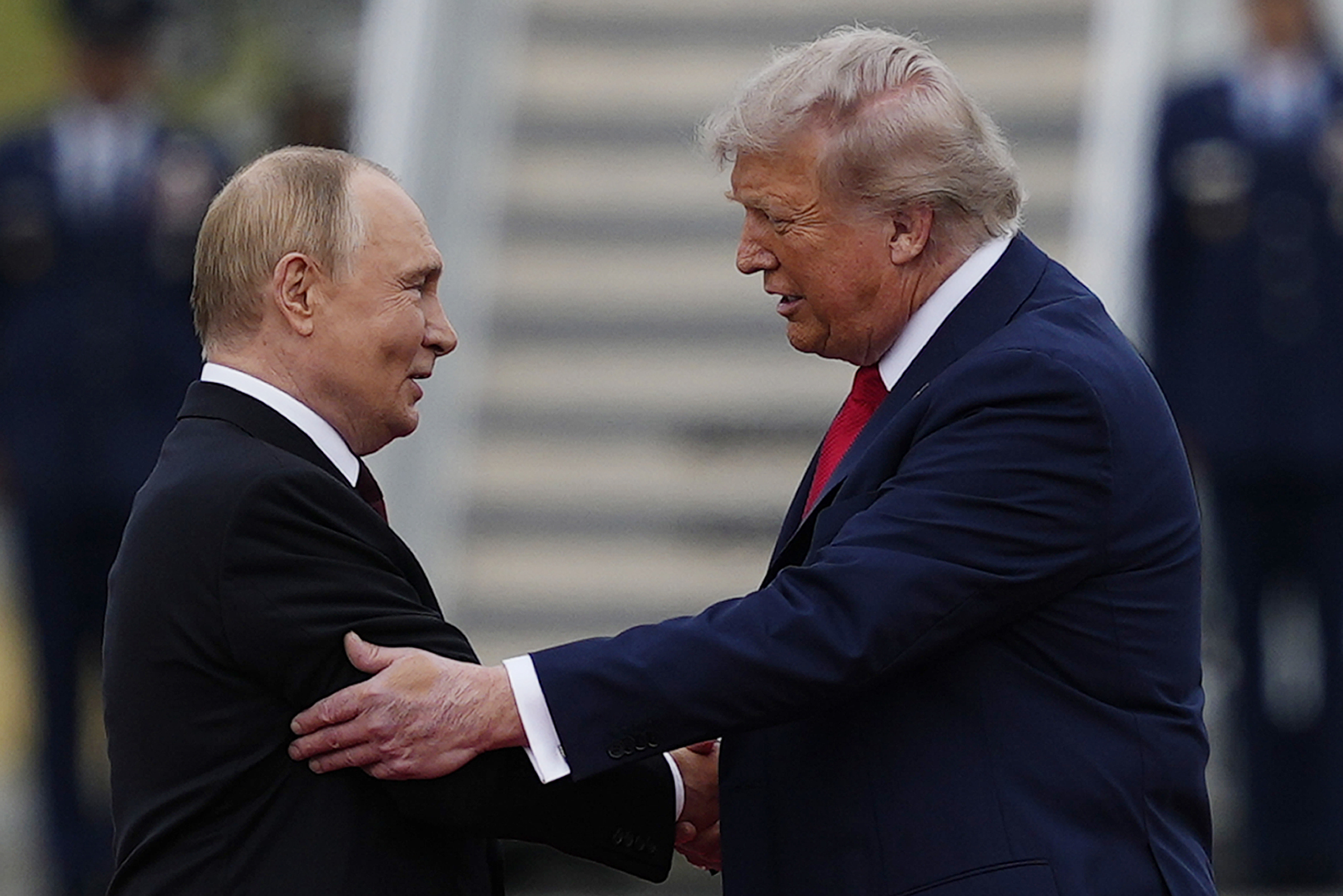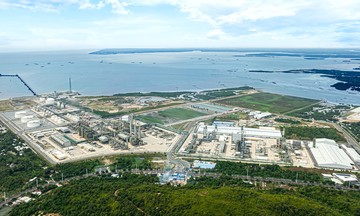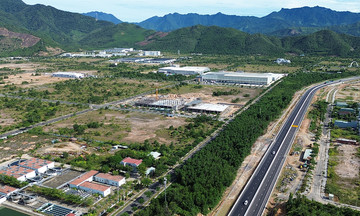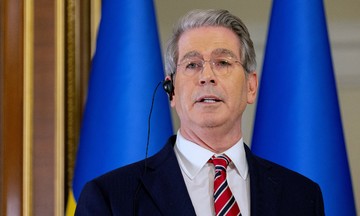On 15/8/2025, US President Donald Trump and Russian President Vladimir Putin held a three-hour meeting in Alaska. No agreements to resolve or pause the Russia-Ukraine conflict were announced. However, both leaders reported significant progress on several issues.
A peace agreement, or even a simple thaw in relations between Moscow and Washington, could pave the way for something until recently considered unthinkable by many US companies: doing business with Russia.
"I saw many Russian businessmen with Mr. Putin. That’s very good. I like that. They want to do business, but they can’t until we settle the war," Mr. Trump said aboard Air Force One. Russian Finance Minister Anton Siluanov and the head of Russia's national investment fund, Kirill Dmitriev, were also present in Alaska.
The US president indicated that if negotiations progressed, he would "discuss business opportunities" with Russia.
 |
President Putin (left) and President Trump in Alaska on 15/8. Photo: AP |
President Putin (left) and President Trump in Alaska on 15/8. Photo: AP
However, analysts believe that restarting economic relations with Russia will be challenging, especially given Russia's diplomatic and economic isolation due to numerous Western sanctions in recent years. According to Russian Security Council Deputy Chairman Dmitry Medvedev, Russia is currently under approximately 30,000 Western sanctions.
Western businesses have left Russia in droves since the Russia-Ukraine conflict began in 2/2022. Over 1,000 foreign companies have either withdrawn their business operations from Russia or scaled back their presence, according to data from the Yale School of Management.
Some companies sold their assets or transferred management to existing leaders. Others abandoned their Russian assets entirely. Companies like Danone and Carlsberg even had their assets seized and sold. Some, like Renault, McDonald's, and Henkel, signed agreements to leave but retained the option to repurchase their assets in Russia. However, the specific terms were not disclosed.
Currently, major US companies like Apple, Goldman Sachs, and MasterCard no longer have a presence in Russia. A few others maintain operations, but business opportunities are significantly reduced compared to before the conflict.
 |
Outside a Stars Coffee in Moscow in 8/2022. Photo: Reuters |
Outside a Stars Coffee in Moscow in 8/2022. Photo: Reuters
The void left by Western companies has been quickly filled by Chinese businesses. Russians have also created their own versions of Western brands. For example, Stars Coffee emerged after Starbucks' withdrawal, with a logo reminiscent of the American company.
Since 6/2022, a fast-food chain called "Vkusno i tochka" (Tasty, and that's it) has replaced McDonald's in Russia. In 4/2023, former KFC outlets reopened as Rostic’s.
Furthermore, even if Western companies return after years of absence, they may not receive the same welcome from Russian consumers.
Russia's budget is sensitive to oil price fluctuations, as the oil and gas sector contributes about 30% of total revenue, according to research by the Oxford Institute for Energy Studies. This is why the West has focused on this sector, aiming to pressure Russia to end the war in Ukraine.
After the conflict began, the European Union (EU) banned Russian seaborne crude oil imports and reduced its purchases of Russian gas. Russian pipeline gas imports to the EU accounted for only 11% last year, down from 40% in 2021. Previously, the EU was the largest buyer of Russian energy.
However, Russia has adapted by shifting to Asian customers. Currently, China and India are the largest buyers of Russian oil. According to energy data firm Vortexa, 36% of India's crude oil imports now come from Russia.
The US president recently threatened additional sanctions on countries still buying Russian oil. He imposed an additional 25% import duty on India, raising the total duty to 50%. However, New Delhi insists that Russian oil is essential for the energy security of its 1.4 billion people.
Another factor deterring US companies from the Russian energy market is the price cap imposed on Russian crude oil exports by the West. The price cap was lowered to 47.6 USD per barrel in mid-last month, down from 60 USD implemented in late 2022. Shipping and insurance companies in participating countries are prohibited from servicing Russian oil exports sold above the cap.
Even for companies still operating in Russia, the business environment has become more difficult. Russian banks face challenges sending and receiving money internationally due to their exclusion from the SWIFT global payment system in 2022, which connects thousands of financial institutions worldwide.
In February, Janis Kluge, a researcher at the German Institute for Security and International Affairs, told CNN that it would be difficult for the US to allow Russian banks back into SWIFT without EU cooperation, as SWIFT is headquartered in Belgium.
At a business event in Moscow on 18/3, Mr. Putin also warned that it would be difficult for Western companies to return to Russia. He said he had asked the Russian government to carefully review agreements by Western companies to repurchase assets, ensuring a thorough case-by-case examination. The Russian president said he respects businesses that continue to operate in Russia but will differentiate between them and companies that "slammed the door" on their way out.
Companies that left due to political pressure and sold assets at symbolic prices will not be able to buy them back at those prices. "And when the void they left behind is filled by Russian businesses, as we usually say, that ship has sailed," he said.
Therefore, even if given the chance, US businesses considering returning to or reinvesting in Russia will have to ask themselves: Is it worth it?
Ha Thu (according to CNN, Reuters)












